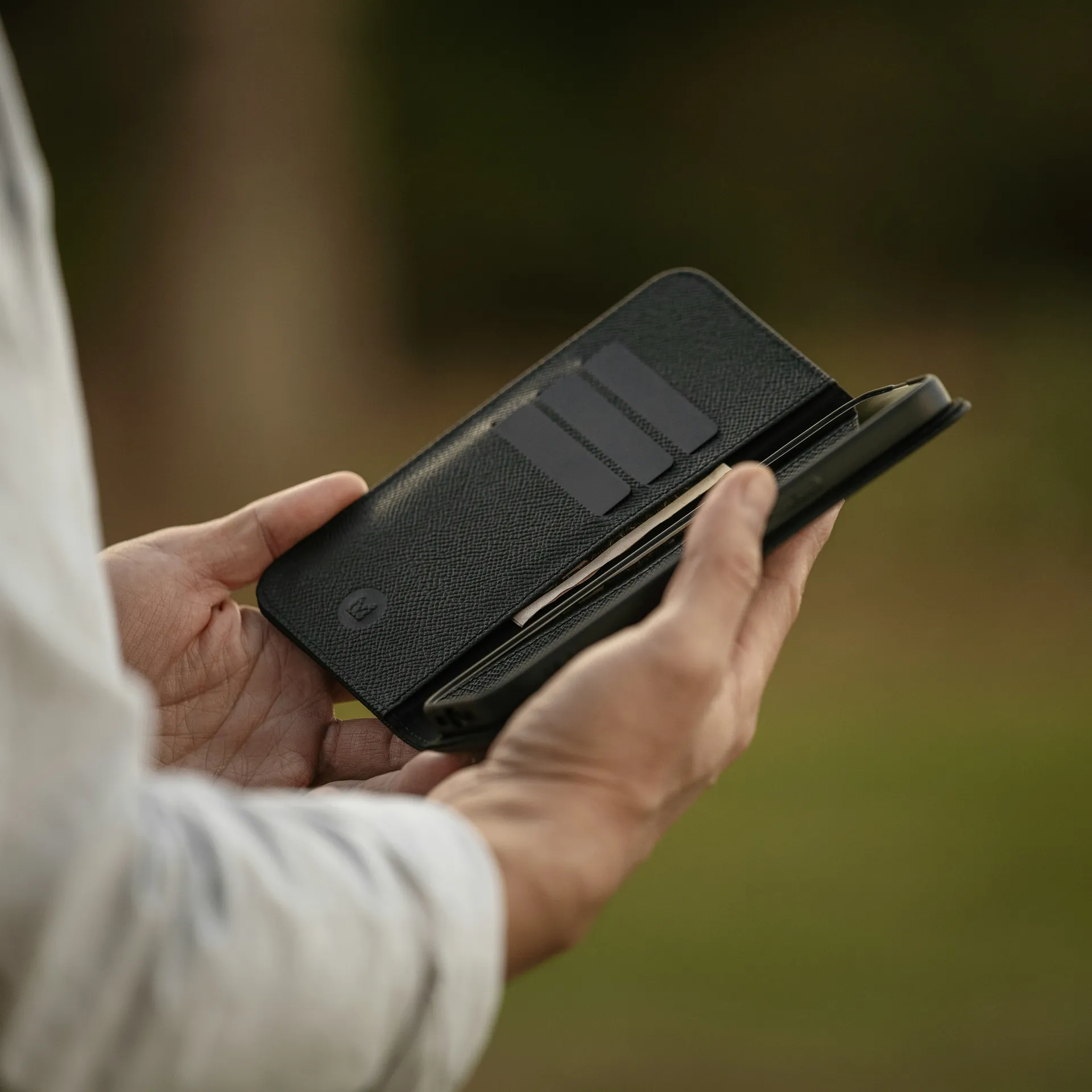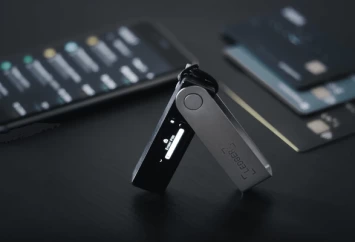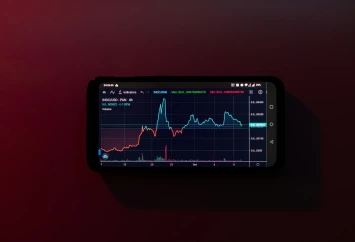If you’re stepping into the dynamic realm of cryptocurrencies, choosing the right crypto wallet is a pivotal decision. This wallet serves not merely as a repository for your digital currencies but as a vital conduit to the blockchain world. It empowers you to securely send, receive, and oversee your cryptocurrencies. Whether your interest lies in Bitcoin, Ethereum, or any other form of digital currency, having a dependable crypto wallet is paramount for safeguarding your investments and ensuring seamless transactions.
For those new to the scene, the plethora of choices might seem daunting. You may find yourself pondering over the distinctions among hot wallets, cold wallets, and hardware wallets, or debating between a custodial versus a self-custody wallet.
This article aims to demystify the essentials of crypto wallets, highlight the key features to consider, and present our top picks for the best crypto wallets tailored for beginners in 2025.
Understanding Crypto Wallets

What is a Crypto Wallet?
A crypto wallet is not a physical container that holds your cryptocurrencies; instead, it is a software program, device, or service that stores the private and public keys necessary for accessing and managing your digital assets. These keys are essentially passwords that prove your ownership of the cryptocurrencies and enable you to send, receive, and spend them. The wallet itself does not store the cryptocurrencies, as they are actually recorded on the blockchain.
The wallet’s primary function is to provide an interface to interact with the blockchain, making it easier to manage your digital assets.
Types of Crypto Wallets
Crypto wallets can be categorized into several types, each with its own set of features, security levels, and user experiences.
Hot Wallets
Hot wallets are connected to the internet, making them easily accessible but also more vulnerable to online threats such as hacking and malware. They are ideal for users who need frequent access to their cryptocurrencies.
Hot wallets can be further divided into desktop wallets, mobile wallets, and web wallets. For example, desktop wallets like Electrum and Exodus store your private keys on your computer, while mobile wallets like Trust Wallet offer convenience and ease of use on your smartphone.
Cold Wallets
Cold wallets, on the other hand, operate primarily offline and are not connected to the internet. This isolation significantly enhances their security, making them a preferred choice for long-term storage and large amounts of cryptocurrency. Hardware wallets, such as those from Ledger and Trezor, are examples of cold wallets.
These devices store your private keys securely on the device itself and require physical interaction to sign transactions, adding an extra layer of security against online threats.
Custodial and Non-Custodial Wallets
Custodial wallets are hosted by a third party, which stores your private keys for you. This can include online wallets provided by cryptocurrency exchanges. Non-custodial wallets, however, give you full control over your private keys, meaning you are responsible for their security.
Non-custodial wallets are generally considered more secure because you do not have to rely on a third party to protect your assets.
Software, Hardware, and Paper Wallets
Beyond the hot and cold categorization, crypto wallets can also be classified into software, hardware, and paper wallets. Software wallets include mobile and desktop applications, while hardware wallets are physical devices designed to securely store private keys. Paper wallets are a more traditional method where your public and private keys are printed on a piece of paper, often used for long-term storage due to their offline nature.
Choosing the Best Crypto Wallet for Beginners
Security Features
When selecting a crypto wallet, security should be your top priority. Here are some key security features to look for:
Two-Factor Authentication (2FA): Ensure the wallet supports 2FA, which adds an extra layer of security by requiring a second form of verification, such as a code sent to your phone or generated by an authenticator app. This makes it much harder for hackers to gain unauthorized access to your wallet.
Encryption and Backup Options: Opt for wallets that offer encryption to protect your private keys and provide backup options. This way, even if your device is lost or compromised, you can restore your wallet using the backup.
Hardware Wallets: Consider hardware wallets like those from Ledger and Trezor, which store your private keys offline, significantly reducing the risk of online attacks. These wallets often require physical interaction to sign transactions, adding an extra layer of security.
Multi-Signature Wallets: For added security, look into multi-signature wallets that require multiple approvals before transactions can be executed. This feature is particularly useful for managing large amounts of cryptocurrency.
User Experience
The user experience of a crypto wallet is essential, especially for beginners. Here are some factors to consider:
User-Friendly Interface: Choose a wallet with an intuitive and easy-to-navigate interface. Wallets like Coinbase Wallet and MetaMask are known for their user-friendly designs, making it simpler for beginners to manage their digital assets.
Accessibility and Compatibility: Ensure the wallet is compatible with your device and the cryptocurrencies you plan to store. Some wallets, like Trust Wallet, support a wide range of blockchains and digital assets, making them versatile for various crypto activities.
Recovery Options: A good wallet should have robust recovery options in case you lose access to your device or forget your password. Look for wallets that offer cloud backups, recovery phrases, or other mechanisms to restore your wallet.
Reputation and Reviews
The reputation of the wallet provider and user reviews are vital indicators of the wallet’s reliability and security:
Trusted Providers: Opt for wallets from well-known and trusted companies with strong security histories. For example, Ledger and Coinbase are reputable names in the crypto wallet space.
Open-Source Code: Prefer wallets with open-source code, as this allows the community to audit the code for vulnerabilities and ensures transparency. Wallets like Trust Wallet and Coin Wallet are open-source, which enhances their security and trustworthiness.
User Reviews: Read reviews from other users to get a sense of the wallet’s performance, security, and any potential issues. Positive reviews and high user satisfaction rates are good indicators of a reliable wallet.
Top Crypto Wallets for Beginners in 2025

Zengo stands out as a robust and user-friendly option for beginners. It is a self-custodial wallet, meaning you have full control over your private keys and digital assets.
Zengo’s unique selling point is its use of Multi-Party Computation (MPC) technology, which ensures that your private key is never stored in a single location, significantly reducing the risk of hacking or theft.
Zengo also offers a streamlined login process using facial recognition (FaceLock) and biometric authentication, eliminating the need to remember complex passwords or seed phrases. This makes it highly accessible and convenient for new users.
Additionally, Zengo provides an integrated crypto exchange feature, allowing users to buy, sell, and swap cryptocurrencies directly within the app. The wallet supports a wide range of cryptocurrencies and NFTs, and it includes features like asset withdrawal protection and a Web3 firewall to enhance security.
Exodus is another excellent choice for beginners, known for its user-friendly interface and extensive feature set. The Exodus mobile app supports over 150 cryptocurrencies and allows users to buy, sell, swap, and stake their assets seamlessly. It offers a secure environment by encrypting private keys and transaction data on the user’s device, ensuring that no registration or account setup is required.
One of the standout features of Exodus is its ease of use. The app allows for one-touch swaps, and users can purchase cryptocurrencies using various payment methods, including credit/debit cards and Apple Pay.
Exodus also provides 24/7 human support and a desktop sync feature, enabling users to manage their assets across multiple devices. The integration with hardware wallets like Trezor adds an extra layer of security for those who prefer cold storage.
Coinbase Wallet is a beginner-friendly option that offers a comprehensive set of features for managing cryptocurrencies. It supports multiple blockchains, including Ethereum, Solana, Bitcoin, and others, making it versatile for users with diverse portfolios.
The wallet allows users to buy, sell, swap, and bridge tokens between different blockchains, and it integrates well with decentralized applications (dApps) like Uniswap and OpenSea.
Coinbase Wallet emphasizes security with features such as automatic spam token filtering, transaction simulation, and protective warnings against malicious dApps and addresses. It also supports hardware wallets like Ledger, allowing users to add an extra layer of security by requiring a second signature for transactions.
The wallet uses a 12-word recovery phrase generated by the BIP39 standard, ensuring that users can restore their wallets if needed.
Conclusion
In conclusion, selecting the ideal crypto wallet for beginners requires careful evaluation of security, user experience, and reputation. It’s important to prioritize wallets that offer strong security measures, including two-factor authentication, encryption, and multi-signature support.
Choose wallets that are known for their user-friendly interfaces, support for multiple cryptocurrencies, and seamless access to decentralized applications (dApps).
Whether your preference leans towards hot wallets like Coinbase Wallet or Binance Web3 Wallet for their ease of use, or cold wallets such as Ledger or Trezor for their superior security, it’s essential to adhere to best practices for safeguarding your private keys and recovery phrases. Make sure to check the wallet provider’s reputation and read user reviews to ensure you’re making a well-informed choice.
By selecting the appropriate crypto wallet, you’ll be well-equipped to explore the blockchain ecosystem, secure your digital assets effectively, and engage in various cryptocurrency-related activities. Don’t delay in beginning your crypto journey—choose a trustworthy wallet that suits your requirements today.


